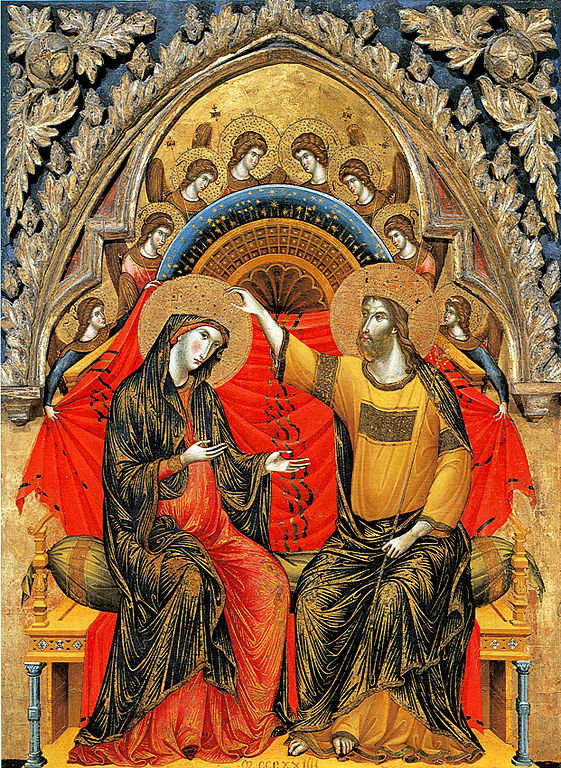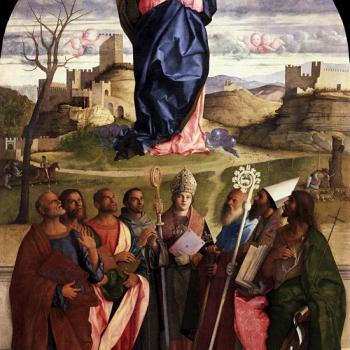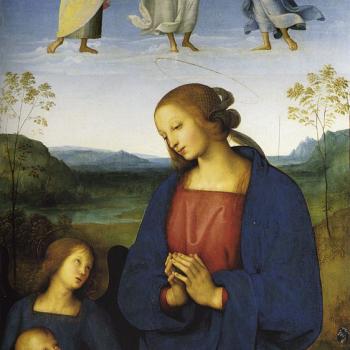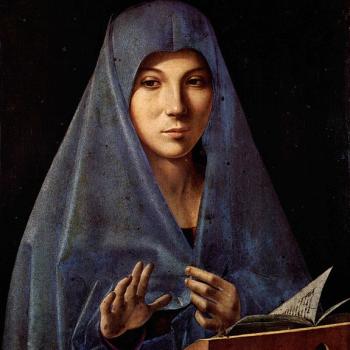
Norman L. Geisler (1932 – 2019) was an American evangelical Protestant theologian, philosopher, and apologist. He obtained an M.A. in theology from Wheaton College and a Ph.D. in philosophy from Loyola University, and made scholarly contributions to the subjects of classical Christian apologetics, systematic theology, philosophy of religion, Calvinism, Catholicism, biblical inerrancy, Bible difficulties, biblical miracles, the resurrection of Jesus, ethics, and other topics. He wrote or edited more 90 books and hundreds of articles.
Dr. Geisler was the Chairman of Philosophy of Religion at Trinity Evangelical Divinity School (1970–79) and Professor of Systematic Theology at Dallas Theological Seminary (1979–88) and a key figure in founding the Evangelical Philosophical Society. He also co-founded Southern Evangelical Seminary. He was known as an evangelical Thomist and considered himself a “moderate Calvinist”. He was not an anti-Catholic (i.e., he didn’t deny that Catholicism was fully a species of Christianity).
This is one of a series of comprehensive replies to his book, Roman Catholics and Evangelicals: Agreements and Differences (co-author, Ralph E. MacKenzie, graduate of Bethel Theological Seminary-West; Grand Rapids, Michigan: Baker Academic, 1995). It’s available online in a public domain version, which has no page numbers, so I will utilize page numbers from my paperback copy, for the sake of full reference. I consider it the best Protestant critique of Catholicism (especially in terms of biblical arguments) that I have ever found, from any time period. The arguments are, for the most part, impressively presented, thought-provoking, respectful, respectable, and worthy of serious consideration (which I’m now giving them).
I’ll be concentrating on the eight sections of Part Two: “Areas of Doctrinal Differences” (202 pages). These installments will be listed and linked on my Calvinism & General Protestantism web page, in section XVII: “Catholics and Protestants” (second from the end). Dr. Geisler’s and Ralph MacKenzie’s words will be in blue. My biblical citations are from RSV.
*****
Another area of tension with Protestant theology is the Catholic belief in the mediatorship of Mary. This cooperative work with Christ in redemption runs
headlong into conflict with the Protestant belief in the uniqueness of Christ’s atonement. (p. 316)
It doesn’t at all, as I will show. If this is supposedly contrary to Christ as the sole mediator, so are several things that St. Paul writes. Dr. Geisler simply hasn’t thought it through deeply or biblically enough, as is so often frustratingly the case in Protestant apologetics.
Both biblical and traditional evidence have been offered for Mary’s role as Mediatrix. The biblical texts cited, however, are scant. (p. 318)
Not if one employs analogical argumentation (a perfectly legitimate way to argue), as I will do.
The scriptural evidence for calling Mary a mediator or co-redemptrix is totally lacking. (p. 319)
The scriptural evidence for calling God the Holy Trinity is totally lacking. The scriptural evidence for determine which books are canonical is totally lacking. The scriptural evidence for Scripture Alone is totally lacking. The scriptural evidence for Faith Alone is totally lacking. Both sides offer indirect and deductive proofs for views. This one is no different. Catholics contend that Mary Mediatrix is in perfect harmony with biblical teaching, and doesn’t contradict it in the least.
The clear meaning of many passages of sacred Scripture declare that there is only “one mediator between God and the human race, Christ Jesus, himself human” (1 Tim. 2:5; cf. John 10:1-11; 14:6; Heb. 1:2-3; 10:12). . . . regardless of the fact that there are other human intercessors to God on earth (2:1-2),75 it is clear that there is only one mediator between humans and God. (p. 319)
Mary stands between men and God vis-a-vis the incarnation. God needed a human being in order for the incarnation to take place, and so Mary stood in that juncture between God the Father (Spirit) and God the Son (The incarnate God-Man). Mary was a vessel for Jesus to come into the world. Likewise, Mary could also be a conduit or vessel for the graces won by Christ alone, by His work on the cross and His divine power alone, to be distributed or applied to men. This is what we believe. We see no conflict between that role and Christ’s role, because they are fundamentally different.
To use a crude analogy, say that I go to a gas station. I don’t produce the gasoline, yet in order for it to be effective in my car, I have to stand there and be a “mediator” between the pump and my gas tank. All the gas flows “through” me as the one connecting the pump with my vehicle. Likewise, we believe that God uses Mary in that fashion, to distribute graces not produced by herself but by God. She isn’t the source of the grace anymore than I am the source of the gasoline. This is a biblical notion (generally speaking): Paul and angels are described in similar fashion.
We don’t think that parents create their children, but their role is crucial. They cooperate with God in a — so to speak — “mini-creation,” where God creates the soul supernaturally and the parents produce the “raw material” for the body. There is still an element of the supernatural in every conception, just as there was to a much greater extent in the conception of Jesus. Parents don’t “create” in the sense of absolute bringing-into-being, but they play a key and crucial role in the entire process. God involves them. Likewise, mediatrix, as applied to Mary is a similar concept. She doesn’t produce the grace she distributes by God’s decree, but God chooses to involve her for that purpose.
The Greek word for mediator in 1 Timothy 2:5 is mesites. We find that it is also used at Galatians 3:19: “Why then the law? It . . . was ordained by angels through an intermediary.” Kittel’s Theological Dictionary of the New Testament (abridged; p. 588) states about the word as used in this passage:
. . . the law . . . is given by God in order to lead to faith in Christ. But it is ordained by angels through an intermediary . . . The intermediary is no doubt Moses . . . The law, then, does not come directly from God.
So the law had a mediator, and so we find in Scripture that grace also can be passed through a mediator:
Revelation 1:4-5 Grace to you and peace from him who is and who was and who is to come, and from the seven spirits who are before his throne, and from Jesus . . .
In similar fashion again, in Revelation 5:8 and 8:3-4, we find that the “four living creatures,” the “24 elders,” and an “angel” somehow have intercepted and are in possession of “the prayers of the saints.” They are interceding for those on earth, and acting as mediators between them and God. Thus, this theme is common in Scripture in many different manifestations.
Eve stands between the human race and sin and the Fall. She is in a sense the “mediatrix” of original sin, though the Bible also teaches that “in Adam, all fell,” so that it was in fact all of us in Adam and Eve, not just them screwing it up for everyone else. Conversely, Mary is the go-between of men and God, by saying “yes” to God and His plan of redemption, thus reversing Eve’s “no” and refusal to obey and cooperate with God. This applied, in the patristic use, more to Mary’s role as the vessel of God for the purpose of the incarnation, which in turn brought redemption.
The sense in which we regard Mary as a sole or unique mediatrix has to do with her preeminent and singular role in the order of grace. We believe that God has chosen to use her in the distribution of all the graces that were won solely by Christ’s infinite merits and work on the cross. She is the only person so honored, just as she is the only Theotokos and Queen of Heaven.
There is an inherent dilemma in Catholic Mariology. On the one hand, Catholic theology admits that everything we need as believers we can get from Christ. On the other hand, many Catholic theologians have exalted the role of Mary as the dispenser of all grace. For them there is a hopeless dilemma. For either the role of Mary is rendered superfluous or else the all sufficiency of Christ’s mediation is diminished. The only way out of the dilemma is to hold, as do Protestants, that Mary is not the dispenser of all grace. This is not to say that Mary, as the earthly mother of Jesus, was the channel through which God’s grace entered the world but only that Mary is not now, in heaven, the dispenser of God’s grace to us. (p. 319)
Human beings spreading graces to other human beings is a practice that is quite explicitly scriptural. St. Paul stated at least twice that he was a conduit of God’s grace to others, and he and St. Peter taught that all of us believers have the potential to do the same:
2 Corinthians 4:15 For it [his many sufferings: 4:8-12, 17] is all for your sake, so that as grace extends to more and more people it may increase thanksgiving, to the glory of God.
Ephesians 3:2 assuming that you have heard of the stewardship of God’s grace that was given to me for you . . .
Ephesians 4:29 Let no evil talk come out of your mouths, but only such as is good for edifying, as fits the occasion, that it may impart grace to those who hear.
1 Peter 4:10 As each has received a gift, employ it for one another, as good stewards of God’s varied grace.
Paul mentions distributing grace to folks at the beginning of practically every epistle that he wrote. When Paul and others use the common greeting of “grace to you” (e.g., Rom 1:7; 1 Cor 1:3; 2 Cor 1:2; Gal 1:3; Eph 1:2; Phil 1:2; Col 1:2; 1 Thess 1:1; 2 Thess 1:2; Phlm 1:3; Rev 1:4), it’s in the sense of “may God give you more grace”; just as St. Peter writes, “May grace and peace be multiplied to you” (1 Pet 1:2; identical wording in 2 Pet 1:2). Angels spread grace, too: “Grace to you and peace from him who is and who was and who is to come, and from the seven spirits who are before his throne, and from Jesus Christ . . .” (Rev 1:4-5).
It was nice of John to add in Jesus Christ at the end (Rev 1:5), along with his own and the angels’ giving of grace, just so we’ll remember that there is but one mediator of God’s grace [sarcasm alert]. So why the objection to Mary the Mother of God the Son doing the same thing? Here are additional related passages:
1 Corinthians 7:16 Wife, how do you know whether you will save your husband? Husband, how do you know whether you will save your wife?*1 Corinthians 9:22 I have become all things to all men, that I might by all means save some.*1 Timothy 4:16 Take heed to yourself and to your teaching: hold to that, for by so doing you will save both yourself and your hearers.*James 5:20 let him know that whoever brings back a sinner from the error of his way will save his soul from death and will cover a multitude of sins.
*1 Peter 3:1 . . . some, though they do not obey the word, may be won without a word by the behavior of their wives,
Mark 16:20 And they went forth and preached everywhere, while the Lord worked with them and confirmed the message by the signs that attended it. Amen.
*1 Corinthians 3:9 For we are God’s fellow workers; you are God’s field, God’s building.*1 Corinthians 15:10 But by the grace of God I am what I am, and his grace toward me was not in vain. On the contrary, I worked harder than any of them, though it was not I, but the grace of God which is with me.*1 Corinthians 15:58 Therefore, my beloved brethren, be steadfast, immovable, always abounding in the work of the Lord, knowing that in the Lord your labor is not in vain.
*Ephesians 2:10 For we are his workmanship, created in Christ Jesus for good works, which God prepared beforehand, that we should walk in them.*Philippians 2:12-13 Therefore, my beloved, as you have always obeyed, so now, not only as in my presence but much more in my absence, work out your own salvation with fear and trembling; for God is at work in you, both to will and to work for his good pleasure.
Mariology is a very high level of spirituality. That’s precisely why tens of millions of Protestants don’t engage in it at all. They have jettisoned this whole aspect of Christianity from their faith (quite contrary to their own founders and their initial “Reformation” heritage), and have never learned about it. Every Protestant has to “unlearn” that built-in hostility and then be willing to learn to think in a very different way: a Catholic, traditional way (that is, when closely examined, more deeply and profoundly biblical than any form of Protestantism).
In conclusion, I’d like to clarify regarding the use of analogy and analogical argument, which is not often used by Protestants, though I used to hear sermons on the “Types and Shadows of Scripture” which is somewhat along the same lines. But by and large, it’s usually a new strain of thought for them. When it comes to Mary, I’m attempting to show that the ways in which Catholics approach that issue are similar to other analogous strains of biblical thought. This is very different from the usual Protestant approach because they are accustomed to arguing only for explicit biblical proofs (in other words, they always presuppose sola Scriptura); otherwise, they think a discussion is worthless, and (oftentimes) “unbiblical.” But not being explicitly biblical and being in contradiction to Scripture and utterly foreign to its outlook and worldview are different things.
I am arguing that Mary Mediatrix is not a notion that is fundamentally foreign to Scripture or “unbiblical” or a contradiction to what we find in the Bible, etc. This is distinct from arguing that it is explicitly proved from the Bible. I don’t think that at all; nor was I arguing such a thing. I am arguing that it is not as outrageous and foreign to the biblical worldview as Protestants casually assume (with much vehemence) and can be argued to follow from its known explicit premises and many indications. Obviously, Mariology involves much development of doctrine also: another huge topic. All true Christian doctrines have developed.












